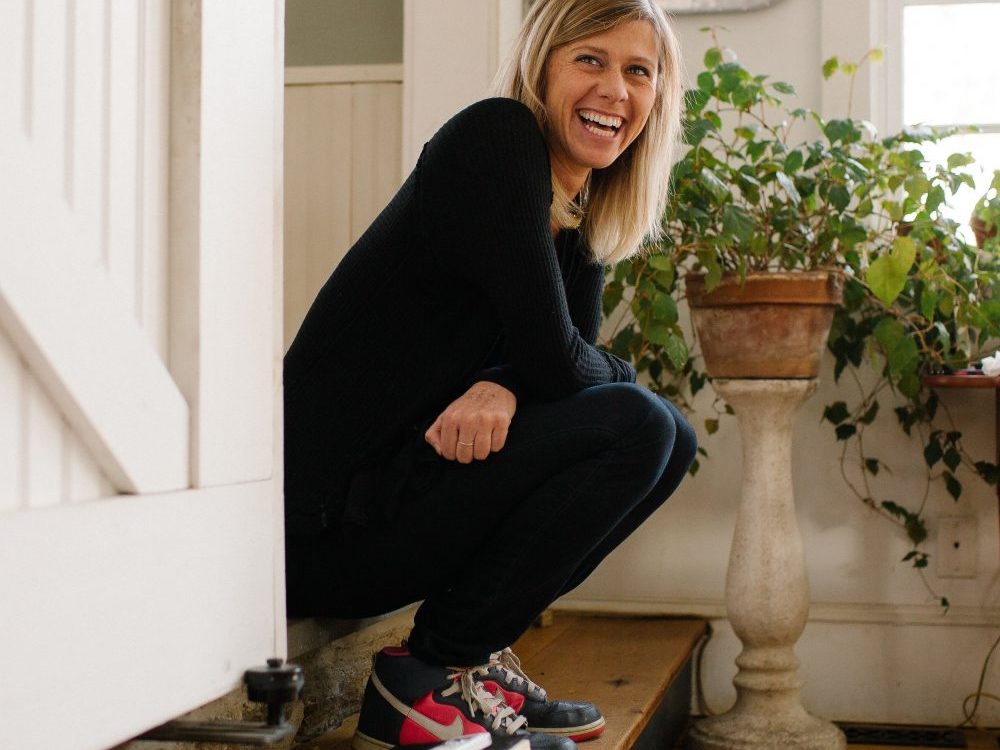Beck Dorey-Stein was a stenographer in the White House from 2012 to 2017. Her job took her into the depths of the White House, witnessing history being made under Obama, and the disappointment of Trump’s election. Unwilling to continue working under the Trump administration, Beck decided to write a memoir about her time with Obama and it blew the country away. A book that’s been compared to Bridget Jones Diary, except that it’s true and full of fascinating insights into what working for the White House is like, the Restless team became obsessed. We got the chance to sit down with the author to talk about Obama, Trump, and power. Read on for her insights on these subjects and more.
How did it feel being in the same room as some of the most powerful people in the world?
That depends on which person. It was always exciting and a little nerve-wracking to be near President Obama. Some of his senior staffers and Cabinet members, although powerful, became friends and mentors after spending so much time together on the road. Foreign leaders, members of Congress, successful business people, and celebrities were interesting to observe but rarely intimidating because I wasn’t expected to interact directly with them. (Instead, I just watched them grow nervous before speaking to President Obama.) In the beginning, everyone impressed me, but after five years, the only person who still made my hands sweat and my heart race was President Obama.
Did your job change the way you perceive power or those in power?
I think in every job I’ve ever had, there’s been the issue of power and the all-too-common abuse of power. Whether it was my restaurant manager when I was 19 or my Lululemon manager when I was 24 or my office director at the White House, power is both necessary and difficult to wear well. Like any industry, there are good leaders in government and not so good ones. My job changed the way I perceive power because President Obama used his in the best, most effective way — to be kind while also establishing boundaries, constructive communication and high expectations. He used his power to listen, to ask questions, to raise awareness and compassion. Seeing his leadership skills in action made me appreciate that power is the opportunity to be generous…or a jackass.
Tell us more about what it feel like to have a job that required you to literally not use your voice.
Most of the time, I didn’t have much to say because I was recording roundtables full of intellectuals and interviews between actual geniuses. Having come from a teaching background, however, I struggled with feeling so unseen. I’d always felt like part of a team, and as a stenographer, there’s no way to really go above and beyond an accurate transcript. I wanted to improve and grow, but how can you ask for feedback when you’re being paid not to speak? It was the job of a lifetime, but it was a job I had to stretch to fit me.
Did that nature of your job become harder to stomach when Trump came?
Yes. I write about this in the epilogue, which could have been much longer except that his staff was turning over at such a clip that it proved impossible to keep up.
How do you feel about the pressure to be as visible as possible today in order to be successful?
It’s certainly a pressure that I struggle with but I guess my attitude towards navigating social media and self-promotion is the same attitude most soccer coaches have toward their squad of squirmy five year-olds: Just try your best to be your best!
You witnessed the first days of Donald Trump’s White House, while some, like myself, had the luxury of shutting off our phones to avoid the reality, you were forced to bear intimate witness to it as part of your job. Can you tell us more about what that was like?
I would but I’m not interested in reliving the trauma! I guess we could sum it up with Donald Trump’s entire vocabulary: Bad, horrible, very bad, tremendous, huge, losers.
What would you say is the biggest lesson you took from your time working close to Obama?
It takes two seconds to say hi to someone, to treat someone with respect and change the trajectory of their day and your interaction. Also, don’t let perfect be the enemy of the good. Also, find your real friends by being the real you. Also, wear flats on travel days if you don’t want to eat tarmac.
How do you feel about our political system as a whole after having such an intense experience within the belly of the beast?
I was pretty disgusted by the politics of politics before my job at the White House and, although I still am, I can see beyond that to the policies that change our lives and our futures. My time in the Obama administration makes me appreciate the complexity of leading any sort of reform, and how things that happen not only in Washington D.C. but also at the state and local level affect us in small and not-so-small ways every day. Trump’s indifference toward climate change, for example, will ripple forward for decades.
Part of why we loved your book more than others that came after the Obama administration was because it’s so relatable. But while that might make the rest of America love it, did you get any pushback about from the DC inner circle who, let’s face it, can be pretty elitist?
I can’t speak for the DC inner circle. I can say that my inner circle in DC was extremely supportive. I suppose that’s another good way to see who your true friends are: Write a memoir!
The book is very revealing of your personal life as well as your professional one. Were you worried about the reactions?
Sure, but I didn’t want to sugarcoat my experience or gloss over the mess. I am not the Martha Stewart of stenography — I was in my 20s, falling in love, making mistakes and figuring it out. I wanted to write honestly about my whole life while working in the White House while obviously protecting the identities of any bad actors. And truthfully, most people who worked in the White House were struggling in more ways than one — that’s what makes us all human, regardless of what job title we hold and where.
You’re unflinchingly critical of yourself throughout the work, what did it take to get to that place?
31 years of being me.
After going through all that you went through with your on again off again affair, do you have any advice for other women experiencing similar situations?
It’s like what Jordan Peele said: GET OUT.
Do you have any advice for young women starting out in a similar intimidating environment and struggling to find their voice?
- Force yourself to ask questions. You’re there to learn, and you’re only going to get better if you know what you could be doing to improve.
- Observe the professionals. Befriend the ones who are smart enough to want to be your friend. Pity the fools who don’t.
- Write down what you’re feeling. Sometimes I felt like what was going on was so wild that I was actually going insane, and I found it extremely grounding to write it down and bear witness to my own crazytown experiences.
What’s coming up next for you?
I’m working on a second book! It’s a novel and boy oh boy, what a lovely change to watch havoc unfold for other (fictional) people!
When do you feel most powerful?
I feel most powerful when I’m able to keep an open mind. Having grown up playing sports, I learned early on how important it is to keep your knees bent if you want to move quickly in any direction. In more recent years, I’ve referred to power as keeping my knees bent mentally. Things are never going to be perfect, failure is an important building block of success, but don’t get caught with your feet planted, killing grass. Stay on your toes with your knees bent (I like to picture a cute cartoon brain wearing a pink sweatband and sneakers) and all that potential energy will get you a great next step in the right direction










